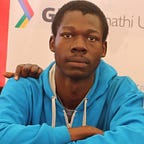Arduino Day Kenya with Intel Galileo at Kilele Lab DeKUT
Take a second to picture the future of technological advancement in Africa. Done? It’s actually bigger than you have thought. A lot has and will continue to transform lives in the continent. Technology has helped create wealth, alleviated poverty and given African countries a floor to compete with other countries from the rest of the world. Major tech firms have now seen Africa as a potential investment region with many of them developing products specifically tailored for the Untapped African market. Once, two men were sent to explore Africa as a market for shoes. One reported that it wasn’t a good investment because people here don’t wear shoes. The other said that in Africa people don’t have any shoe dealers, and this would be the best investment opportunity. It’s all about perception. Tech penetration in Africa is increasing by the day such that if I gave you stats today they wouldn’t mean as much a month or two from now. It’s great that we are creating opportunities for market leaders but the greater news is that they are also providing opportunities for Africans to help shape the future of their own technology. The key pillars that are going to spear head the tech revolution is research, innovation, creativity and incubation. Coming closer home to the Silicon Savannah, Kenya is fast becoming the main African hub for global technology companies because the country is getting its ICT game right. Last month, global electronics giant Philips announced plans to set up a research and innovation hub in Kenya. Meanwhile, the likes of tech giant IBM has its only African research hub in Kenya. Major Universities have also set up open spaces for techies to develop their expertise and help develop the next ‘M Pesa’. Recently Dedan Kimathi University of Technology (DeKUT) launched their tech incubation center, Kilele Lab which was officially opened by CS for ICT DR Fred Matiang’i where students will be able to access the creative space, high speed connectivity, technical support and resources needed to further develop their projects. The Kilele Lab will be the first of its kind to merge technology and culture. It has started off in very high gear hosting its first event barely two weeks after the launch.
In a room with tables, chairs, large windows, white board screen and a projector, students were hunched over their laptops before the event. Probably too busy to notice my intrusion. Conversations ranged from Arduino boards to the latest internet meme and back again. This could have been happened anywhere in Kenya but it was at DeKUT where students were gathered on 28thMarch 2015 at Kilele Lab (K^Lab) to mark the Arduino Day Kenya that was sponsored by Intel through the Intel at DeKUT student Partner Marvin Ngesa the organiser. Arduino day is a worldwide celebration of Arduino’s birthday and the makers’ movement where people interested in Arduino get together, share their experiences, and learn more.
The day’s program was divided into 2 sessions with one in the morning, a lunch break and another in the afternoon. In the morning the audience were taken through the Intel Student Partners program at DeKUT and got to know what the new partnership spells out for them, and the perks it brings, they were introduced to Intel Galileo and its specs, including its compatibility with Arduino Software Development Environment (IDE) and disruptive technology which is an enhanced technology that replaces an existing technology or that succeeds similar technology and uses either Arduino or Intel Galileo.
Emerging technology like the IoT was also discussed and how it is going to revolutionize the world and everything in it. In the afternoon, the students were able to interact and showcase the projects and presentations they have been working on which included demos that helped everyone fully appreciate Arduino and Intel technology. DeKUT joins the list of universities in the fore front of the Kenyan tech revolution. There has been a shortage of ladies in the tech industry but we hope more of them come up to equally compete with their male counter parts.
Originally published at creativeconnekt.wordpress.com on March 30, 2015.
